
|
|
The Spectropop Group
|
 |

|
|
The Spectropop Group
|
 |
Jerry Leiber and Mike Stoller 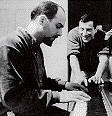 'Rock 'n' roll is said to have been formed from a fusion between black rhythm-and-blues and white entrepreneurship. If so, then the foremost of the fair-skinned founding fathers must be Jerry Leiber and Mike Stoller. Before the dawn of rock, in 1950, they were both teenagers transplanted to L.A. from the East Coast. Stoller dug jazz but played with dance bands while attending Los Angeles City College. Through a drummer friend he met Leiber then a student at Fairfax High with an after-school job at a record store. They spent that summer writing songs that reflected their shared love of black pop music, and before the year was out Jimmy Witherspoon had recorded and performed Leiber and Stoller's "Real Ugly Woman" in concert...' >>>presented by There 1 |
 Mike Stoller and Jerry Leiber Mike Stoller and Jerry Leiber "Jerry Leiber and Mike Stoller have written some of the most spirited and enduring rock and roll songs: "Hound Dog" (originally cut by Big Mama Thornton in 1953 and covered by Elvis Presley three years later), "Love Potion No. 9" (the Clovers), "Kansas City" (Wilbert Harrison), "On Broadway" (the Drifters), "Ruby Baby" (Dion) and "Stand By Me" (Ben E. King). Their vast catalog includes virtually every major hit by the Coasters (e.g., "Searchin'," "Young Blood," "Charlie Brown," "Yakety Yak" and "Poison Ivy")..." >>>presented by Rock and Roll Hall of Fame |
Smokey Joe's Cafe "As America struggles to emerge from the Great Depression, a legend is born - well, not just one. 1933 marks the births of legendary songwriters Jerry Leiber and Mike Stoller. While the rest of the country is content to listen to Glenn Miller's "String of Pearls" and Bing Crosby's "White Christmas", these two young, white, Jewish boys feel the urge to "boogie woogie". But Jerry's uncle kicks the 9-year-old off the piano for playing it while Mike takes lessons from Fats Waller's mentor! Fast-forward to 1950, when their mutual love of boogie woogie and rhythm and blues brings them together to become the most influential songwriting team in rock & roll history. .." >>>The Official site of Smokey Joe's Cafe |
 Mike Stoller and Jerry Leiber Mike Stoller and Jerry Leiber "Jerry Leiber and Mike Stoller formed one of the best and most prolific songwriting teams of the 50's and 60's in addition to their work as record producers. Their formula was to take their love of R&B music and transform it into songs that appealed to a wide audience through their unforgettable melodies, well-conceived lyrics, and meticulous methods of producing records..." >>>presented by Tom Simon |
The Robins "This Los Angeles vocal group were the forerunners of the Coasters. They began as the Four Bluebirds in 1947, then became the Robins. Ty Terrell, Billy Richards, Roy Richard, and Bobby Nunn were the original members, with Carl Gardner and Grady Chapman adding in 1954. A year later Gardner and Nunn departed to form the Coasters. The Robins had two R&B Top Ten hits. "If It's So Baby" was done with the Johnny Otis Band in 1950 for Savoy, while their best-known number, "Smokey Joe's Cafe," was recorded for Atco in 1955..." >>>presented by All Music Guide |
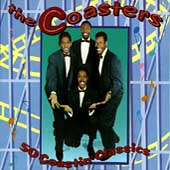 The Coasters The Coasters "Possibly the most popular doo wop group of the '50s, the Coasters started on the West Coast as the Robins, scoring hits under the writing-and-production helm of Jerry Leiber and Mike Stoller..." >>>presented All Music Guide |
The Coasters at Hall of Fame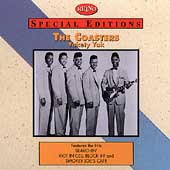 "The Coasters cut a string of rhythm & blues hits that were liberally salted with humor and sung in an infectious, uptempo doo-wop style. The group struck it big with songs written for them by the duo of Jerry Leiber and Mike Stoller, including such classics as "Charlie Brown," Yakety Yak," "Along Came Jones," and "Poison Ivy." During their late Fifties heyday, the Coasters' recordings - written with street smarts and R&B punch by Leiber and Stoller, sung with sly humor and verve by the Coasters, and accompanied by hot, honking sax solos from King Curtis - helped define rock and roll by appealing to and reflecting the lot of the American teenager..." >>>presented by Hall of Fame |
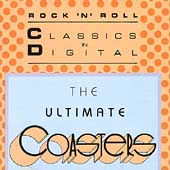 The Coasters The Coasters "The group began in Los Angeles in the late forties and were known as the Robins. In 1950 they had a number one hit with "Double Crossing Blues" featuring Little Esther Phillips. In 1953 they met Leiber and Stoller when they moved from Crown Records to RCA. In 1954 Robins followed Leiber and Stoller to Spark Records ..." >>>presented by History of Rock |
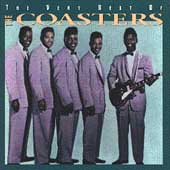 The Coasters The Coasters "This R&B vocal group hailed from Los Angeles, USA. The illustrious career of the Coasters, the pre-eminent vocal group of the early rock 'n' roll era, was built on a remarkable body of cleverly comic R&B songs by their producers, Leiber And Stoller . Under their direction, the Coasters exchanged the crooning of ballads favoured by most groups of the era for robust and full-throated R&B shouting. The group came together in 1955 from remnants of the Robins, who had a dispute with their producers/songwriters, Leiber and Stoller..." >>>presented by Yahoo! |
The Drifters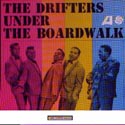 "The Drifters helped create soul music with gospel style vocals. After Clyde McPhatter was fired by the Dominoes Ahmet Ertegun of Atlantic Records encouraged him to form a group. McPhatter discovered the other members singing at the Mount Lebanon Church in Harlem, New York. The Drifters were not only a popular for their vocals but, for their choreography. Within a year McPhatter and the Drifters had recorded "Money Honey," "Such A Night," "Honey Love," and "White Christmas." McPhatter was drafted into the Army in 1954...." >>>presented by History of Rock |
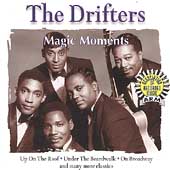 The Drifters The Drifters "Originally a backup group formed around the soaring vocal talents of Clyde McPhatter, the Drifters -- like their '50s counterparts, the Platters and the Coasters -- have turned out to be one of the most enduring "franchises" in rock & roll. Unlike other groups who lost key members along the way and never regained their artistic or commercial footing, the various incarnations of the Drifters produced distinctly memorable material every step of the way..." >>>presented by All Music Guide |
The Drifters at Hall of Fame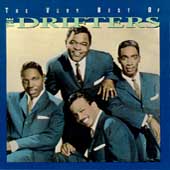 "The Drifters served to link Fifties rhythm & blues with Sixties soul music. They epitomized the vocal group sound of New York City. Theirs was the sweet but streetwise sound of R&B suffused with gospel influences. The material the Drifters recorded came from a variety of sources, including the songwriting teams of Jerry Leiber and Mike Stoller, Doc Pomus and Mort Shuman, and Gerry Goffin and Carole King. All were New York-based songwriters who wrote evocatively of romance and everyday life in the big city, and the Drifters made an ideal vehicle for the convincing delivery of such scenarios. The records they cut with Leiber and Stoller (who doubled as producers) introduced the sound of strings and Latin-tinged rhythms into the vocabulary of popular music..." >>>presented by Hall of Fame |
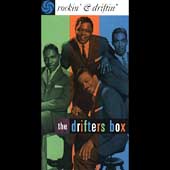 The Drifters The Drifters "The Drifters are truly unique in today's world of coming and going popular music groups. And following their 25 year long history is like reading a history of contemporary popular music. From their very first release on Atlantic Records, "There Goes My Baby" (which was also the first rhythm and blues record to incorporate violins), they were bound for stardom - with a 2 million seller under their belts in their first try. Over the next ten years there were 29 additional chart records (according to Billboard) accounting for nearly 200,000,000 sales of singles and over 80 million albums in the United States alone. ..." >>>On Line Talent |
Johnny Moore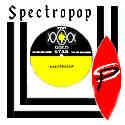 Johnny Moore, one of the lead singers featured on many of the Drifters' big hits, died in London on December 30th, 1998 while on route to hospital. He was 64. Moore reportedly had been suffering from breathing difficulties. Alabama native Moore joined the Drifters around the time Clyde McPhatter was drafted, but Drifters' manager George Treadwell fired the original line-up in 1958 and quickly recruited The Five Crowns (featuring tenor vocalist Ben E. King) to become the all-new "Drifters." This new line-up set the pace for the group's second wave of hits with records like 'There Goes My Baby,' the seminal Leiber And Stoller record that, for the first time on an R&B record, featured Baion rhythm and lush strings. Between 1958 and 1961, Johnny Moore signed to Sue Records (under the stage name Johnny Darrow) and recorded a number of sides including an interesting Sonny Boy Williamson cover 'Don't Start Me Talking.' Juggy Murray, one of the only successful black record label owners in New York at the time, founded Sue in 1958 primarily as a jazz label, but his artist roster featured some R&B acts such as Ike and Tina Turner and Inez Foxx. (As a side note, I understand Murray signed a young black guitarist named Jimmy James, but times were tough, so when the Animals manager came around making queries, Murray reportedly sold him the Jimmy James contract for $750.00. James went to London, changed his name to Jimi, and, as they say, the rest is history). Moore rejoined the Drifters in 1961 and sang with Rudy Lewis on such hits as 'Up on The Roof' and 'On Broadway.' In 1964 Moore became the lead singer after Lewis died of a suspected drug overdose. His first recording as Drifters' lead singer was the smash hit, 'Under The Boardwalk', recorded one day after Lewis died. 'Under The Boardwalk' reportedly features Phil Spector on guitar. In the 70's, Moore and the other Drifters moved to England and signed with Bell, where they enjoyed a number of hits written and produced by Tony Macauley, Roger Cook and Roger Greenaway. Between
1973 and 1975, the group, still fronted by Moore, enjoyed six UK
Top 10 hits, including Come On Over To My Place and Kissin' In
The Back Row Of The Movies. >>>presented by Spectropop |
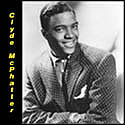 Clyde McPhatter Clyde McPhatter "As the lead singer for Billy Ward & His Dominoes and the Drifters, Clyde McPhatter was one of the most important R&B vocalists of the '50s. His high, passionate vocals were charged with gospel inflections, as well as blues -- his fusion of the sacred and the secular was crucial in the develpoment of R&B and soul. While his recordings with Ward and the Drifters were his most influential, McPhatter's solo records were equally excellent, as well as popular -- his first nine solo singles were all Top 10 R&B hits, and three of those -- "Treasure of Love," "Long Lonely Nights," "A Lover's Question" -- were number one. However, his career began to slide in the '60s as he became increasingly depedent on alcohol. His abuse eventually led to his early death in 1972, yet Clyde McPhatter's legacy could be heard throughout the soul and R&B of the '60s and '70s, particularly in the seductive smooth soul of Al Green and the Spinners...." >>>presented All Music Guide |
Ben E. King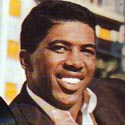 "As new lead singer for the Drifters, King crooned the soulful smashes "There Goes My Baby," "Save the Last Dance for Me," and "I Count the Tears" before heading out on his own in 1960. The vocalist's own Atco singles mirrored the sumptuous production of his Drifter sides, and "Spanish Harlem," "Don't Play That Song (You Lied)," and the R&B chart-topping "Stand by Me" were all huge successes..." >>>presented by All Music Guide |
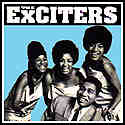 The Exciters The Exciters The Exciters are considered among the best girl-groups of the 60s, due in no small part to the dynamically vibrant lead vocalist Brenda Reid, production skills of Leiber and Stoller and top rate songwriting. Access here for the Exciters page at Spectropop >>>presented by Spectropop & Cha Cha Charming |
Jay and the Americans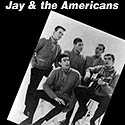 "Jay & the Americans managed to consistently record hit songs and put four of them in the top ten in the 60's. All were recorded for United Artists.
The original lead singer of the group was John "Jay" Traynor, who had been with the Mystics in the late 50's. He got together with a group called the Harbor Lites in New York City late in 1959 from among a group of students at New York University. Among the original group members were Sandy Deane [nee Sandy Yaguda], Sydelle Sherman and Kenny Vance>>>presented by Tom Simon |
 Jay & the Americans Jay & the Americans "Jay and the Americans were formed in 1961 in Brooklyn, New York. The group auditioned for record producers Jerry Lieber and Mike Stoller who signed them to United Artists. Their first hit "She Cried" (top 5, 1962) was sung by the original vocalist, Jay Traynor. Soon thereafter, Traynor was replaced by Jay Black who san lead on all future recordings by the group. Jay and the Americans were a stable unit for the entire 1960s, and recorded many big hits, among them "Come A Little Bit Closer," "Cara Mia," and "This Magic Moment"..." >>>presented by Audities |
Jay and the Americans "Jay Black wasn't even in the band when they got their first big hit, "She Cried," which went to #5 in 1962. Produced by Leiber and Stoller, the booming percussion and soaring strings, as well as the sad melody, was reminiscent of their work with the Drifters, though in a much Whiter mold. Jay Black had replaced lead singer Jay Traynor by the time of their second hit in 1963, "Only in America" (neither of them, by the way, were actually named Jay; their first names were conveniently changed to fit the band's billing). >>>presented by All Music Guide |
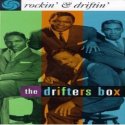 Only in America Only in America The Drifters in the Midst of the Civil Rights Era By Randy Poe The songwriting talents of Jerry Leiber and Mike Stoller are indisputable.
A tip-of-the-iceberg list of their credits as a team includes "Hound
Dog," "Jailhouse Rock," "Love Potion # 9," "Yakety
Yak," "Charlie Brown," "Poison Ivy," "Kansas
City," "I'm A Woman," "Searchin'," "Treat
Me Nice," "Love Me," "Is That All There Is?,"
and many of the Drifters' recordings, including "Ruby Baby,"
"Drip Drop," "There Goes My Baby," and "Fools
Fall In Love."
|
 |
![]()